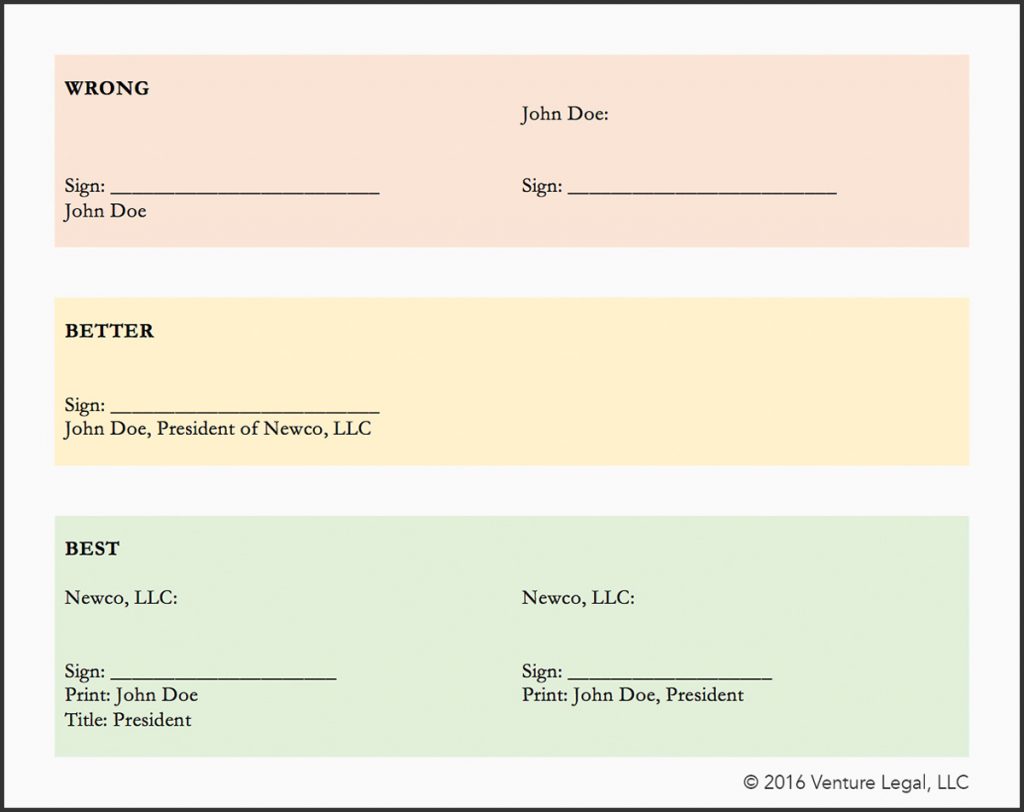Editor’s note: Opinions expressed in this commentary are the author’s alone. This article is general in nature and does not constitute legal advice. Readers with legal questions should consult an attorney.
Among the benefits of operating your startup or freelance business as an LLC is the limited liability for the company’s owners.
Limited liability means the company’s owners will not be personally liable for the debts, obligations, and liabilities of the company. As a result, even if your company loses a lawsuit, your personal assets will be safe — unless your veil is pierced.
However, many entrepreneurs and freelancers make a very serious error when signing contracts by signing as individuals rather than on behalf of their company. When they do this, their personal assets become subject to claims from the other parties to the contract.
Here’s how you can avoid that unfortunate result.
First, identify your company as the party.
Usually, the parties to the contract will be identified in the first paragraph of the contract, the preamble.
To properly name your company, fill in your company’s legal name (the one on file with your Secretary of State). You should also include the entity classification such as LLC or Inc. In the example below, the legal name is “Newco, LLC.”
Second, sign the contract on behalf of your company.
The signature block of your contract is very important. In the image below, you’ll find three examples of signature block options. Let’s examine each of the examples:
- The first example is clearly a signature block for John Doe (an individual) because the company name doesn’t appear.
- The second example isn’t quite so clear. On the one hand, it could be a signature block for John Doe (an individual) with his title and company serving to further identify John Doe as a specific individual. On the other hand, it could be a signature block for Newco, LLC (a company) with John Doe signing as President, on behalf of Newco, LLC.
- The third example is clearly a signature block for Newco, LLC (a company) because the company’s name appears above the signature. John’s name and title are printed below the signature to show that he is signing on behalf of the company.
When you are ready to sign contracts for your startup or freelance business, make sure you use the right format depending on your circumstances.
Chris Brown is the founder of Venture Legal, a Kansas City law firm serving the entrepreneurial community, and also b.Legal Marketing, a website development and hosting platform for small law firms. You can follow him on Twitter @CBSCounsel. Sign up for more stories like this by clicking here.






































